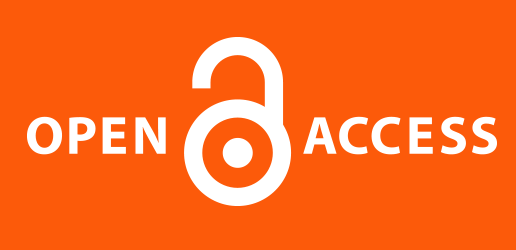Research Articles
Issue Reviewers
 0000-0001-5658-2183
0000-0001-5658-2183


 0000-0001-8881-9229
0000-0001-8881-9229


 0000-0003-4401-2532
0000-0003-4401-2532








 0000-0001-8209-1759
0000-0001-8209-1759


 0000-0002-0713-6803
0000-0002-0713-6803

Aim & Scope
Journal of Universal History Studies (JUHIS): It has publishing aim that the fieldworks which are related to the scope of history and archaeology with the rigorous observation of the reviewer. It is aimed with these studies which are published that contribution of Turkish and World history and mediation of the reunite with readers. The journal wishes to reach a lot more readers with using open access system. To be among the most respected journals in the field of history in Turkey and in the world is among our greatest goals. The Journal of Universal History Studies aims to be comprehensive and therefore welcomes national and international papers on historical research without any historical or regional restrictions.
Journal of Universal History Studies (JUHIS): It is a scientific journal which is peer-reviewed journal and published in June and December twice a year. Besides scientific essays, it includes blurbs and reviews. In the journal; History and Archaeology studies are published. In the journal, we take under review the scientific studies which are written in Turkish and English. However, the articles that use foreign archives and are sent in English will be given priority in the publication phase (after they successfully pass the peer-review process). It will be carried out guest editorship executions in the journal.
Author Guidelines
1. The studies submitted to the journal must be prepared in accordance with the specified format and in this format should be maximum 40 pages.
2. The study has to be in the Word format and it has to be uploaded in the same format.
3. Article has to be prepared with Times New Roman typeface. Abstracts, text and references have to be 12 type size. Row pitch has to be 1,2, before 6nk and after 6nk. The indent has to be 1,5 cm.
4. The page top must be 3 cm, bottom 2 cm, left-right margins 2.5 cm. Abstract and main text must be written justified.
5. Main title has to be written 14 type size, thick and centred. Main title's and Subtitles’ first letters have to be capital.
6. The abstract has to be prepared in 150-350 words in Turkish and it has to be translated in English and it has to be put in the first page of the study. The keywords have to be written under the abstract and it has to be maximum 5 words. An extended abstract should be prepared with a minimum of 1 page and a maximum of 1.5 pages. "Extended Abstract Guidelines" must be read in this regard.
7. Quotations which are in the studies do not have to exceed 15 % of the study. Quotations which are less than 3 lines have to be written in the text and with inverted comma, quotations which are more than 3 lines have to be written italics and 1,2 row pitch, 1 cm from the right of the line and 1,5 cm from the left of the line, in block and with inverted comma. Expressions in quotation marks should be italicised.
8. Page numbers have to be at the end of the page and centred.
9. Footnotes have to be in the text. Footnotes which are given for the purpose of exposition have to be 10 type size and 1 row pitch.
10. Every study has to have bibliography. Bibliography has to start in a separate page.
11. Appendixes have to be given after bibliography and have to be started in a separate page.
12. The elements like table, picture and graphic names which will be used in the text have to be 10 type size and the source has to be shown necessarily.
13. The information which is related to the writer hasn't to be in the text while it is being uploaded to the system. Study has to be written with the rules which are stated in the template, firstly Name and Surname, Institution Information, (Tr and Eng) e-mail and Orcid ID.
14. It should be stated that the articles comply with Research and Publication Ethics. (On the first page)
15. Articles which are sent to the journal will be taken under review after scanning similarity aspect. Similarity rate can be %20 (iThenticate or Turnitin)(excluding references).
16. Abstracts and References should be prepared using the Latin alphabet.
The Rules of Footnote and Bibliography
1. The books of single writer
- Intertextual Usage: (Barry, 1997, p. 58)
- Bibliography: Barry, Patrick (1997), Saint Benedict and Christianity in England, Ampleforth Abbey Press, Southern Avenue.
2. The books of two writers
- Intertextual Usage: (Yücel and Sevim,1991, p. 15)
- Bibliography: Yücel, Yaşar and Sevim, Ali (1991), Türkiye Tarihi(1018-1839) Volume 1, Türk Tarih Kurumu Press, İstanbul.
3. The books of more than two writers
- Intertextual Usage: (Sayılı, Karal et al., 1978, p. 18)
- Bibliography: Sayılı, Aydın; Karal, Enver Ziya et al.(1978), Bilim, Kültür ve Öğretim Dili Olarak Türkçe, Türk Tarih Kurumu Press, Ankara.
4. Chapter in a book
- Intertextual Usage: (Dokuyan, 2013, p. 273)
- Bibliography: Surname, Name (Year), Title of the Book Chapter, N., Surname (Ed.), In Book Name (V., pp.), Publisher, City.
- Example: Dokuyan, Sabit (2019), Hatay Meselesi, E. Müezzinoğlu(Ed.), In Atatürk Dönemi Türk Dış Politikası(V. 1, 273-292), İdeal Kültür, Istanbul.
5. The articles of single writer
- Intertextual Usage: (Dokuyan, 2014, p. 65)
- Bibliography: Dokuyan, Sabit(2014), “Anıtkabir Nasıl İnşa Edildi? Süreç ve Tartışmalar”, History Studies, Volume 6/5, September. (131-156)
6. The articles of two writers
- Intertextual Usage: (Dokuyan and Tekin, 2017, p. 55)
- Bibliography: Dokuyan, Sabit and Tekin, Ahmet Coşkun(2017), “1950 Yılında Çıkarılan Genel Af ve Yansımaları”, Turan-Sam, Volume 36, September.(691-701)
7. The articles of more than two writers
- Intertextual Usage: (Baker, Ball et al., 1979, p. 13)
- Bibliography: Dokuyan, Sabit; Fidan, Aysun et al.(2018), “Tarih ve Gerçeklik”, Journal of Historical Transformation, Volume 2, October.(272-279)
8. Symposium Statements
- Intertextual Usage: (Bektaş, 2006, p. 65)
- Bibliography: Bektaş, İzzettin (2006), “Sözlü Tarihin Tanıklığında Cumhuriyet Döneminde Buldan’da Verem Gerçeği ve Veremle Mücadele”. Buldan Symposium, Denizli.
9. Dissertations
- Intertextual Usage: (Dokuyan, 2013, p. 111)
- Bibliography: Dokuyan, Sabit(2013), 1945-1950 Yılları Arasında Türkiye, Erciyes University, Kayseri. (Unpublished PhD Thesis)
10. Encyclopedia Article
- Intertextual Usage: (Dokuyan, 2013, p. 33)
- Bibliography: Dokuyan, Sabit(2013), “Ahmet Hilmi Kalaç”, Kayseri Encyclopedia, Volume 3, İstanbul.
11. Archive Documents
- Intertextual Usage: (BCA, A25/030.01.0.0/17.212.1.)
- Bibliography: BCA, A25/030.01.0.0/17.212.1.
12. Newspapers
- Intertextual Usage: (Times, 10.07.1944 p. 15)
- Bibliography: Times, 10th July 1944.
13. Assembly Reports
- Intertextual Usage: (TBMMTD, 15.12.1950, p. 15)
- Bibliography: TBMMTD, 15th December 1950.
14. Internet Addresses
- Intertextual Usage: (www.dergipark.org.tr)
- Bibliography: www.dergipark.org.tr/tr/pub/juhis. (Access Date: 01.01.2020)
15. In Articles Written on Ancient History, Archaeology, etc., the abbreviations in the Oxford Classical Dictionary [OCD] abbreviation list are followed in the text and in the bibliography. When citing Ancient, Late Antiquity and Byzantine authors and works, the classical citation order is followed. This abbreviation includes {Author}, (Work), [Chapter], [Paragraph and line].
Note: For authors, works, etc. that are not included in the Oxford Classical Dictionary abbreviation list, their full form should be indicated in the first footnote cited, and the preferred abbreviation should be indicated in parentheses in subsequent uses.
In-text Usage: Tac. ann. XV. 17.3.
Bibliography: Tac. ann. (= Text Used: Koestermann, Erich, (1968), Cornelius Tacitus, Annalen, erläutert und mit einer Einleitung versehen, Band IV: Buch 14-16, Carl Winter Verlag, Heidelberg.)
16. Translated Book:
Intertextual Usage: (Barry, 1997, p. 58)
Bibliography: Barry, Patrick (1997), Saint Benedict and Christianity in England, (Trans. S. Dumlukara) Ampleforth Abbey Press, Southern Avenue.
NOTE: It can be benefited from APA 6 rules except from example usage information above. Please Click for further information.
Ethical Principles and Publication Policy
- Journal of Universal History Studies'(JUHIS) Ethical Principles and Publication Policy is totally structured on “Committee on Publication Ethics (COPE)” and "Directory of Open Access Journals (DOAJ)."
- JUHIS follows ICMJE's definition of authorship and contributors.
- This journal is licensed under a Creative Commons BY-NC-SA 4.0 (Attribution-Non Commercial-Share Alike).
ETHICAL PRINCIPLES
Ethical Principles for the Writer
- It is assumed that all the writers who send studies to the journal take on legal responsibility of the writings. Responsibilities about the plagiarism belong to the writers. If an essay is created from the writer’s work, it has to be stated in the footnote. Ant information should not be used without source.
- All authors must declare any conflict of interest related to their manuscripts. If financial support was received for the study, this should also be clearly stated.
- The manuscripts sent to JUHIS for review will first be checked for similarity. The similarity rate can be maximum 20% (Excluding Bibliography).
- Contributors' names must be included in the paper submitted for publication. Adding the name of a person who has not made any contribution to the study is considered unethical. In such cases, all responsibility belongs to the author.
- Multiple, Redundant or Concurrent Publication: Study does not have to be sent more than one journal at the same time. An author should not in general publish manuscripts describing essentially the same research in more than one journal or primary publication. Submitting the same manuscript to more than one journal concurrently constitutes unethical publishing behavior and is unacceptable. In general, an author should not submit for consideration in another journal a previously published paper. Publication of some kinds of articles in more than one journal is sometimes justifiable, provided certain conditions are met. Further detail on acceptable forms of secondary publication can be found from the ICMJE.
- Authorship and AI Tools: Authors who use AI tools in the writing of a manuscript, production of images or graphical elements of the paper, or in the collection and analysis of data, must be transparent in disclosing in the Materials and Methods (or similar section) of the paper how the AI tool was used and which tool was used. Authors are fully responsible for the content of their manuscript, even those parts produced by an AI tool, and are thus liable for any breach of publication ethics. JUHIS supports COPE's " Authorship and AI Tools " approach..
- Falsifying the information and documents used, using expressions that insult individuals and institutions, and denigrating national and religious sentiments are expressions that should not be included in academic work.
- It should be stated that the articles comply with Research and Publication Ethics.
- Authors are required to notify the editor of JUHIS immediately if they find a significant error or inaccuracy in their published work, so that the article may be retracted or an appropriate erratum/corrigendum published. If there are errors that significantly affect the conclusions or there is evidence of misconduct, this may require retraction or an expression of concern following the COPE Retraction Guidelines.
- Ethics Committee Approval: In all branches of science, including social sciences, there must be ethics committee approval for studies that require ethics committee approval. The relevant approval must be stated in the article and the document must be attached to the article. Information about the ethics committee permission (name of the committee, date of acceptance and acceptance number) should be included on the first and last page of the article. Any research conducted with qualitative or quantitative approaches that involves collecting data from participants using surveys, interviews, focus groups and interview techniques requires ethics committee permission.
Ethical Principles for the Reviewer
- Fairness and Objectivity: All submissions will be evaluated according to their content and evaluations will be made objectively. Criticisms/evaluations that extend beyond the content of the article are inappropriate. This also includes any personal criticism of the author. Articles will be judged on their intellectual content, regardless of the authors' gender, religious beliefs, ethnicity, race, nationality or political views.
- The reviewers should criticize the content of the article clearly and with useful arguments. Reviewers should also point to published papers on the topic under review that are not included in the article and try to improve the quality of the publication. Reviewers are also obliged to draw the editorial board's attention to strong similarities or overlaps of the reviewed contribution with another published work, if known..
- Articles sent to the reviewers for evaluation should be considered as confidential documents. These articles cannot be shared with third parties or discussed without the permission and approval of the JUHIS’ Editorial Board. The content of unpublished articles cannot be used in another study by the reviewers without the permission of the relevant author..
- The result has to be uploaded to the system after taking under view in a suitable time for the reviewer. This is important both coming true the expectations and wishes of the writer and the publication process of the journal. If a reviewer feels that it is not possible to complete the review of the manuscript within the specified timeframe, this information should be communicated to the Editor so that the manuscript can be sent to an alternative reviewer.
- If the ethical problems which are not realised by the editors and if the reviewers realise that problem, they have to inform editorial board immediately.
- It is expected from the reviewers that they have to take care for not being sufferer for the studies’ criticism which are examined without reading or caring.
- Reviewers carry out their evaluations through the online DergiPark system. For DergiPark reviewing processes, watch DergiPark's video "How can I submit my review as a reviewer?".
- JUHIS continues its publishing life with the voluntary support of our reviewers and free of charge. It is expected that the field experts who are sent a reviewer request will fulfill this role as much as possible. For this reason, if they do not fulfill the role of reviewer without any reason, firstly, the relevant field experts will not be invited to be a reviewer again for a year and the papers they will send during the same period will not be evaluated. If they refuse to be a reviewer for the second time, they will not be invited to be a reviewer again and their work will definitely not be reviewed.
Ethical Principles for the Editors
The editor and field editors of JUHIS should hold the following ethical responsibilities that are based on the guides "COPE Code of Conduct and Best Practice Guidelines for Journal Editors" and "COPE Best Practice Guidelines for Journal Editors" published as open Access by Committee on Publication Ethics (COPE).
- All kinds of studies which are sent to the journal have to be taken under review without distinction.
- Reviewer process has to be secret in all conscience.
- Editors have to work queasily both in the process of the first stage of the study and in the process of the publication, the studies which are found inconvenient have to be refused.
- All articles submitted to JUHIS for publication, but not yet published, are copyrighted by their corresponding authors.
- Journal Editors should make decisions by considering the skills, expectations and information needed by all parties (researcher-practitioner-reader). The editor should make sure that the published work is original and contributes to the literature. They should also carefully evaluate the feedback of the relevant parties and provide informative and explanatory feedback if necessary.
- The editor is obliged to accept a study submitted to the journal to the preliminary review stage and to ensure the continuation of the review process unless a serious problem is detected. Editors are also obliged to take into account the positive suggestions made by the referees unless they identify significant problems in the work under review. A new editor should not change any decision made by the previous editor unless he/she detects a serious problem.
- An editor should act in accordance with the following principles in the process with reviewers:
1. In selecting reviewers, he/she should always take into account the subject of the study
2. Inform the reviewers about the process they will carry out.
3. Intervene if there is a conflict of interest between the author and the reviewer.
4. The identities of the reviewers who will review the article should be kept strictly confidential.
5. Support the reviewers to evaluate the manuscripts impartially and in accordance with the principles of scientific ethics.
6. Develop steps to improve the performance of reviewers.
7. Prevent unscientific and rude peer review approaches.
8. Make an effort to continuously expand the reviewers pool of the journal. - Precautions Against Possible Misconduct and Malpractice: Editors should take precautions against possible misconduct and malpractice. They should take an active role in identifying and evaluating such attempts. If an investigation is to be conducted, they must act objectively and meticulously. The results of the investigation must be communicated to those concerned. If an ethical doubt arises regarding the article, COPE Flowcharts should be followed.
- Protection of Intellectual Property Rights: Editors are responsible for protecting the intellectual property rights of all the articles published in the journal and the rights of the journal and author(s) in cases where these rights are violated. Also, editors must take the necessary precautions in order to prevent the content of all published articles from violating the intellectual property rights of other publications. JUHIS supports COPE's "Intellectual Property Policies and Procedures".
- Complaints and Appeals: Editors must examine the complaints from authors, reviewers or readers and respond to them in an explanatory and enlightening manner. Complaint and appeal cases are handled within the scope of COPE Guidelines by the Editorial Board of the journal. Appeals should be based on the scientific content of the manuscript. The final decision on the complaint and appeal is made by Editor-in-Chief..
Unethical Behaviour: Should you encounter any unethical act or content in JUHIS apart from the ethical responsibilities listed above, please notify the journal by e-mail at juhisjournal@gmail.com.
PUBLICATION POLICY
Pre-Review
- The corresponding author submits the paper to the journal via an online system https://dergipark.org.tr/en/pub/juhis
- Articles must be prepared according to the journal template.
- When uploading the article to the journal, the Copyright Form and Author Contribution Form should be filled in and signed and attached to the relevant field in pdf form.
- Plagiarism Policy: Once the articles are scanned in the plagiarism program (iThenticate or Turnitin), if the article has more than 20% similarity articles are excluded from evaluation process. An article is checked for plagiarism by the journal. The consequences of plagiarism, which is considered academic dishonesty, are the sole responsibility of the author. JUHIS issensitive to protecting intellectual property rights. It is also committed to encouraging this behavior. If there is plagiarism in an article, the quality and innovation of that work is open to discussion. Authors who want to produce a quality academic work are expected to avoid plagiarism and comply with ethical principles. If plagiarism is detected in a work under review or in a published work, the situation is reviewed by the relevant Field Editor and the Editorial Board. The author is then contacted and an explanation is requested within 20 days. If the author does not respond, the institution or organization of which the author is a member is contacted and asked to examine the claim. A decision is made within the scope of the examination carried out within the journal and the report received from the relevant institution-organization. COPE's flowchart for "plagiarism in a submitted manuscript" or "plagiarism in a published manuscript" is also taken into account.
- All articles submitted for evaluation, after being processed by a plagiarism detector software, is accurately read by editors and the conformity/disconformity of the article with the publication policies, content and theme of the journal in academic and ethical terms is determined. Those articles determined to be in disconformity will be returned to the author/s. The editorial board reserves the right to reject manuscripts if they do not meet scholarly originality or follow submission guidelines. Refunded and rejected articles will not be re-evaluated. The pre-review process takes place over a period of 4-12 weeks. At this stage, the article appears in the "in secretarial" status. While the manuscript is in secretarial status, messages sent by the author regarding the status of the manuscript are not responded to.
- Article Withdrawal: Author can withdraw his/her article when it is in the preliminary review stage. The option to withdraw an article is only available at the preliminary stage. Articles that have been submitted for peer review, accepted for publication or received a DOI cannot be withdrawn. If an article is withdrawn by the author except for preliminary control, the articles submitted by that author will not be accepted for publication for three years. Article withdrawal can only be done at the Pre-Review stage.
Review and Reviewer Process
- In the journal, we take under review the scientific studies which are written in Turkish and English. However, the articles that use foreign archives and are sent in English will be given priority in the publication phase (after they successfully pass the peer-review process). If the English articles are not prepared in an academic style and according to grammar and writing rules, the relevant article will be rejected in the preliminary examination. Such articles must be prepared with a professional approach. Please Click for further information.
- Double Blind Peer Review: The online system organized for reviewer evaluation does not allow the authors and reviewers to see the names of each other. Journal of Universal History Studies adopts the principle of double blind peer review. The information related to the author doesn't have to be in the text when it is uploaded to the system. The study must be written according to the rules given in the template, first of all the name and surname, information about the institution (Tr and Eng), e-mail and Orcid ID.
- Each submitted manuscript is evaluated by at least 3 reviewers who are considered to be experts in the relevant field.
- Articles reviewed and prepared for peer-review will be sent to three reviewers from within the field to be evaluated and reported within 45 days. If one or both reviewers do not respond to the invitation, The Editor will resend the invitation to the reviewer(s), who should respond within 15 days. If the invitation is not accepted or replied to by one or both reviewers, the invitation will be forwarded to the new reviewer(s) in accordance with the double-blind peer review process. For book review type studies one review is sufficient.
- If the reviewers do not evaluate the study within 45 days, an additional 15 days will be granted. Reviewers make their evaluations on the review form organised by the Editorial Board of the Journal of Universal History Studies.
- The reviewers will evaluate the article in terms of authenticity, efficiency of methodology, conformity with ethical rules, presentation of findings and results, bibliography, style and language and report the article as “Major Revision, “Minor Revision”, “Reject”, “Accept” .
- Articles, unless evaluated as “publishable” by at least two reviewers, will be declined and returned to the author with the reasons attached. For accepted articles, Editör in Chief makes the final decision on the date of publication.
- Authors are asked to upload the article within 30 days after the necessary corrections and review have been performed. Articles which have not been uploaded within this duration are deleted from the system.
- Spell and language check is also done in this step.
- The decision shall be made within 12 months at the latest and the owner shall be informed about the publication of the articles sent to the journal.
- At most one study of a writer can be published in the same year.(from 2021). In order to maintain publication quality, JUHIS publishes a limited number of articles. To provide author diversity in the journal and to be listed in prestigious indexes, the journal will accept submissions from authors within the framework of the following rules;
1. Authors who have /will have 2 articles in JUHIS will not be evaluated for at least 4 issues after their last publication.
2. Authors who have /will have 3 articles in JUHIS will not be evaluated for at least 5 issues after their last publication.
3. Authors who have /will have 4 articles in JUHIS will not be evaluated for at least 7 issues after their last publication.
- In order to ensure diversity on an institutional basis, care is taken not to publish too many articles from the same institution in one issue.
- If the article has more than one author, the names of these authors must be entered into the article upload system when the article is uploaded. If the author names are missing, a request can be made to the journal to add author names only at the preliminary review stage. New author names are not added to articles that are in the referee process or accepted.
- All rights of the article belong to the author. In this frame, the author reserves the copyright of the work and leaves the first publication rights of the article to Journal of Universal History Studies (JUHIS).
- There is no guarantee of publication and publication date for an article.
- JUHIS is equidistant from all authors. Please do not request privileges for the publication of any work. No guarantee is given regarding the publication or publication date of any article. Do not offer your work to be evaluated with a request for acceptance letter. These conditions also apply to members of the editorial board.
- J. Univ. Hist. Stud. will no more accept the articles that were written after being presented in oral and/or written form at symposiums and congresses. Articles to be written in this way can only be published in pre-announced special issues.(from 2023)
- In Publications Derived from Master’s Thesis; Articles produced from ongoing or completed graduate studies are not accepted in the evaluation process. If the article is a study produced from doctoral thesis, its full description should be written revelant field in the copyright form.(From 2023).
Edit
- The final version is then sent to the Layout Editor in order to produce a galley proof, and the authors receive this proof for final check before publishing.
- All manuscripts are posted online as pdf files in their final form, indexed in databases with the assigned DOI numbers.
ARCHIVING POLICY
- To ensure that all articles published in JUHIS are preserved and permanently accessible, manuscripts are stored in the DergiPark platform, which exists as a national archive and also allows LOCKSS to collect, preserve and deliver content. Authors are also encouraged to store the final version of their articles inopen archives that comply with Open Archives Initiative(OAI) standards.
OPEN ACCESS POLICY
- Journal of Universal History Studies (JUHIS), adopts open access policy. JUHIS also supports the Budapest Open Access Initiative.There are many degrees and kinds of wider and easier access to this literature. By "open access" to this literature, we mean its free availability on the public internet, permitting any users to read, download, copy, distribute, print, search, or link to the full texts of these articles, crawl them for indexing, pass them as data to software, or use them for any other lawful purpose, without financial, legal, or technical barriers other than those inseparable from gaining access to the internet itself. The only constraint on reproduction and distribution, and the only role for copyright in this domain, should be to give authors control over the integrity of their work and the right to be properly acknowledged and cited. Thus, the open access policies adopted by the editorial board of JUHIS can be found at https://www.budapestopenaccessinitiative.org/read/ , https://www.budapestopenaccessinitiative.org/boai10/ , https://www.budapestopenaccessinitiative.org/boai20/
Journal of Universal History Studies does not receive any help or support from any institution or organization.
Price Policy
J. Univ. Hist. Stud. does not require any fee or any other benefit from the authors for publication / evaluation of the articles submitted. It is worth noting that the journal does not offer any form of compensation to its authors for their contributions.
Journal of Universal History Studies © 2018 by Sabit Dokuyan is licensed under CC BY-NC-SA 4.0


